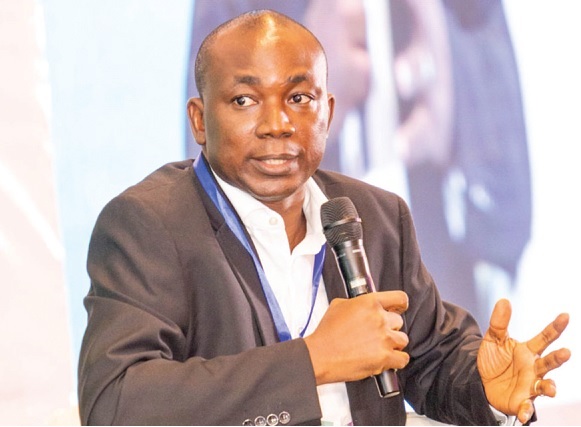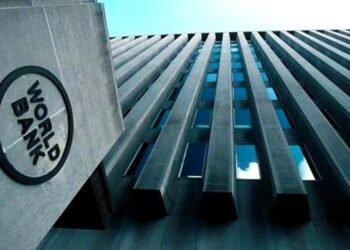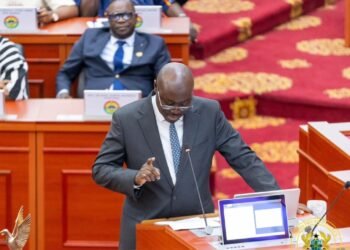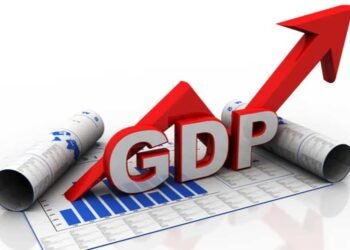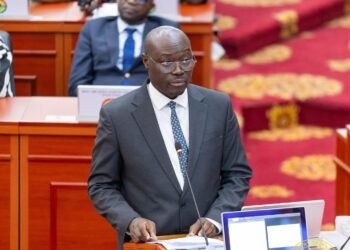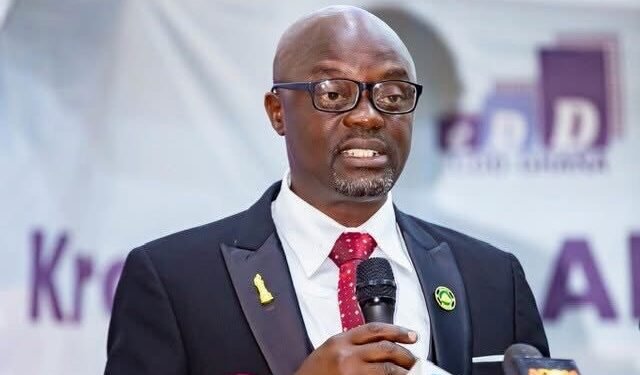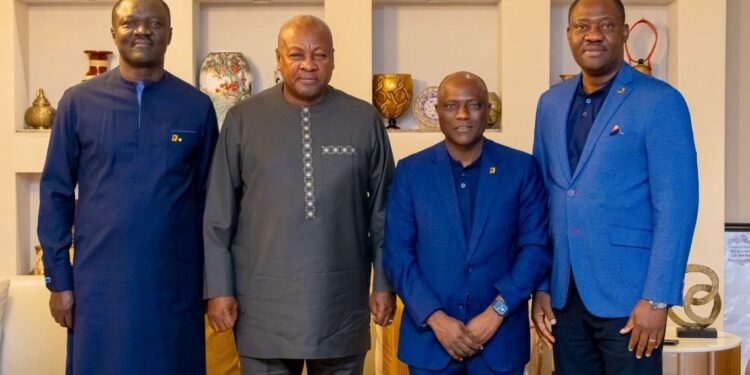Professor Godfred Alufar Bokpin, a renowned economist at the University of Ghana, has commended the Mahama administration for what he described as a remarkable demonstration of fiscal discipline, especially when compared to the previous New Patriotic Party (NPP) administration.
He noted that the present government appears to be taking a more cautious and strategic approach to economic management, something he believes was absent in previous years.
“We are clearly now seeing fiscal discipline as compared to the NPP administration, which failed in managing expenditure.”
Professor Godfred Alufar Bokpin, a renowned economist at the University of Ghana
Despite lauding the administration’s economic prudence, Prof. Bokpin was quick to add a cautionary note. For him, the budget announcement on key major road infrastructure projects announced by the Finance Minister alone is not enough.
“It still remains a promise until Ghanaians see the release of funds for the road projects that have been listed in the mid-year budget,” he remarked. He emphasised that without actual cash flow disbursement and implementation on the ground, the well-laid-out plans could amount to nothing more than political rhetoric.
“The government is not spending appropriately to match our infrastructure deficit. I am not blaming the Minister, given the fact that they want to spend within their means, this seems optimal now.
“Listening to the roads we are going to do is different from committing resources to them. Until you see commitment, cash flow disbursal, it is not going to happen.”
Professor Godfred Alufar Bokpin, a renowned economist at the University of Ghana
Nonetheless, Prof. Bokpin offered strong praise for what he sees as a refreshing shift in leadership and economic thinking under the current administration.

“It looks to me that this government has listened adequately in terms of the direction this economy has to go, and they deserve to take credit,” he said, pointing to signs of economic rebound and discipline that have become apparent in recent quarters.
He argued that the Mahama government deserves acknowledgement for turning the tide of the economy.“The current administration has ample room to take credit for the economy,” he asserted, drawing a sharp contrast with the previous administration. “The past administration did not listen.”
Criticism of Past BoG Leadership
In a direct critique of the past leadership of the Bank of Ghana, Prof. Bokpin remarked that Ghana’s economic trajectory might have been different had there been stronger leadership in the central bank. “If the previous management of the central bank had 40 per cent of the leadership that the current ones are showing now, the economic situation would have been different,” he said.
Perhaps most notably, Prof. Bokpin underscored what he views as unprecedented fiscal restraint under the current government. “We haven’t seen anything like this in our history,” he stated, referring to the fiscal cuts and expenditure controls implemented in the face of the country’s ongoing economic recovery.
The praise from one of the country’s leading economists is likely to bolster public confidence in the Mahama administration’s handling of the economy, particularly as Ghanaians continue to grapple with the lingering effects of previous financial mismanagement and external economic shocks.
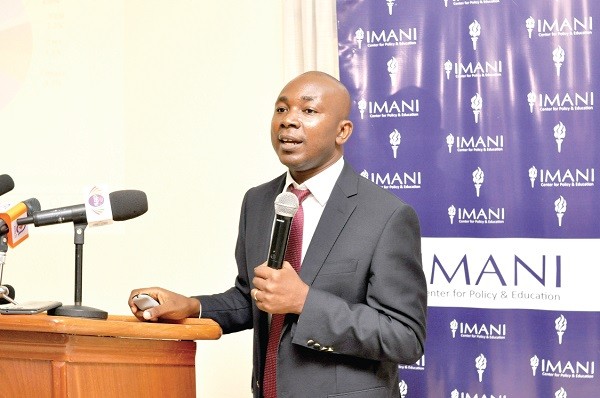
However, as Prof. Bokpin repeatedly cautioned, the success of the ambitious infrastructure drive ultimately rests on implementation, not intention.
His remarks come on the back of the 2025 Mid-Year Budget Review presented by Finance Minister Dr. Cassiel Ato Forson to Parliament, which detailed the government’s ambitious plan to invest GHS 13.8 billion in road infrastructure
The road infrastructure commitment is part of President John Dramani Mahama’s flagship “$ 10 billion Big Push Program,” a wide-ranging initiative launched in the 2025 Budget aimed at reversing Ghana’s significant infrastructure deficit.
According to Dr. Forson, the programme will be driven by a new financing model that directs all oil revenues and mineral royalties toward infrastructure, particularly roads.
Major road projects announced under the programme include the construction of a new bridge over the Oti River at Dambai, the rehabilitation of the Wa-Han and Techiman-Nkonsia-Wenchi roads, the upgrading of the Tumu-Hamile and Tumu-Han-Lawra roads, and the reconstruction of the Navrongo-Tumu and Navrongo-Chuchuliga-Sandema roads.

Additional extensive works are also slated for the Bono, Ashanti, Volta, Eastern, Central, Western, and Greater Accra regions.
Whether the GHS 13.8 billion commitment translates into tarred roads, completed bridges, and improved transport systems will be the true measure of the administration’s ability to deliver on its promises.
READ ALSO: Ato Forson Defends Ban on Dollar-Denominated Contracts

